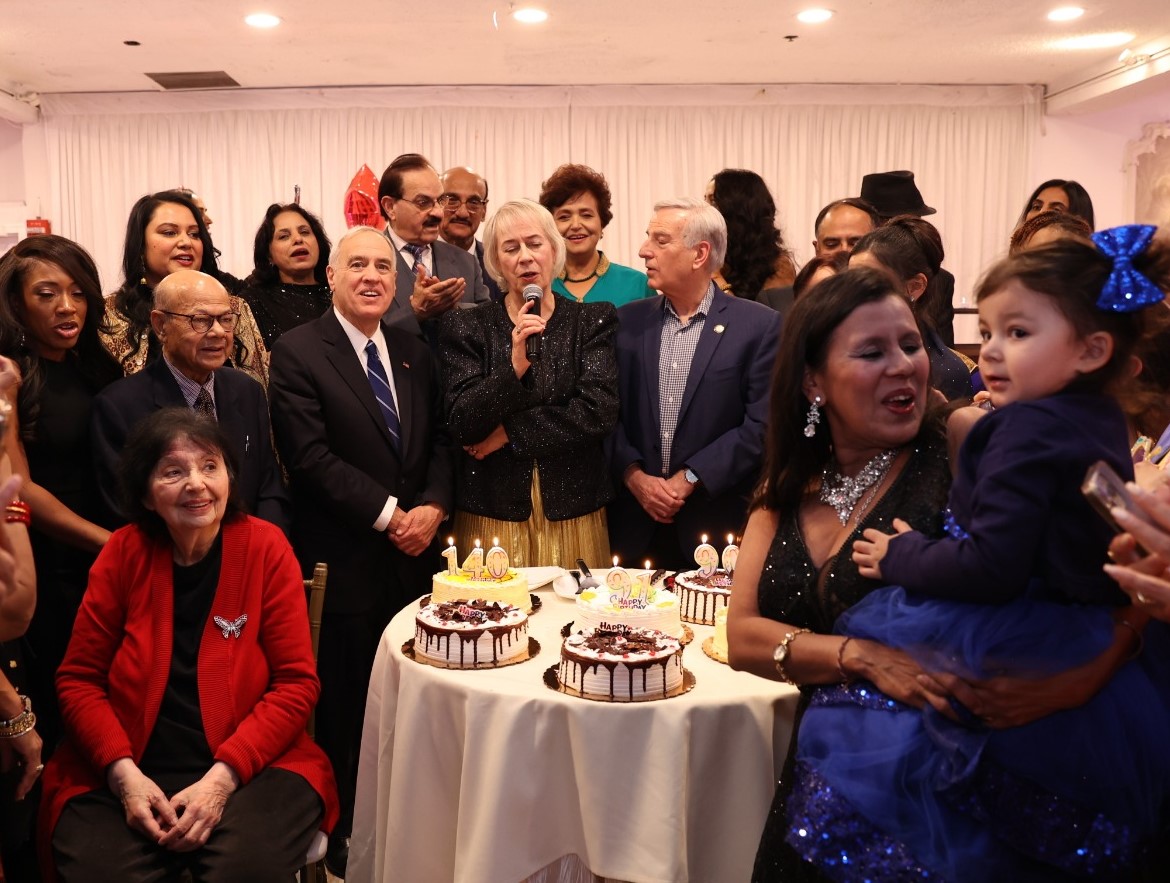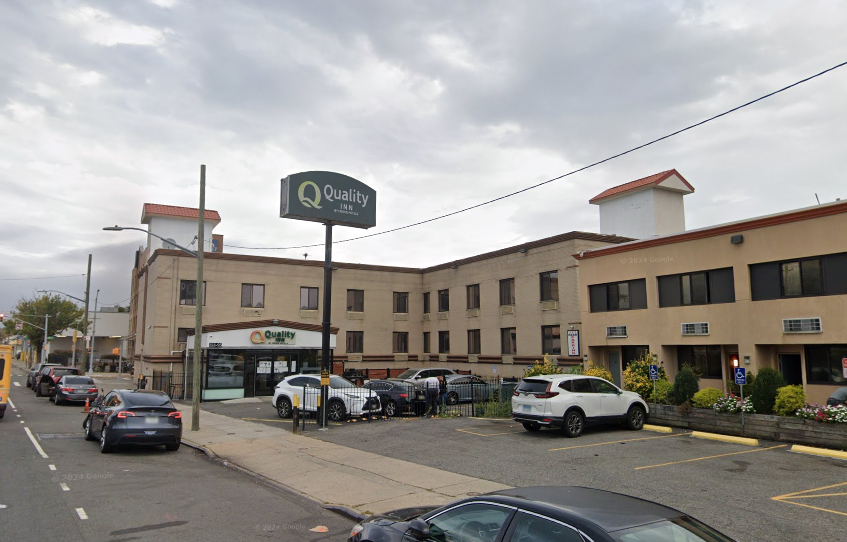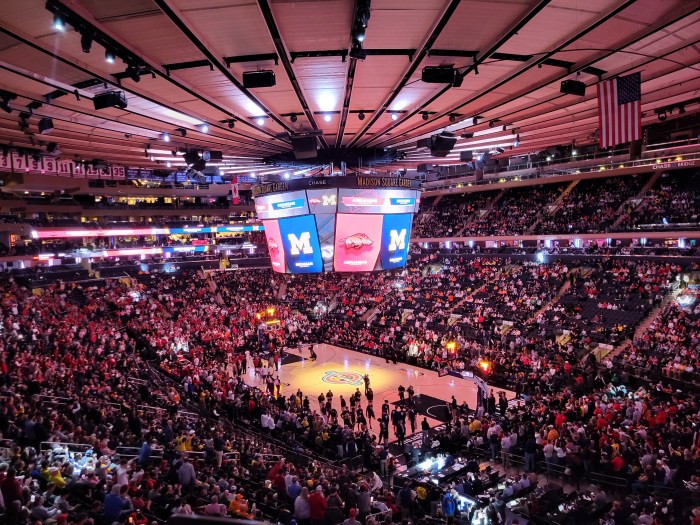By Jerry Tallmer
They are both, as it happens, named Albert.
Here is the first Albert, giving a little demonstration lecture:
“Newton, forgive me,” he says. “About gravity, it is not a force. It is a field.”
He picks up a grapefruit from the bowl before him. “This will be the sun,” he says. He drops it on a flexible surface before him. “You see how it affects the space around it? Now, what happens if we introduce a planet?” He removes a grape from the fruit bowl. “This will be a little planet.” Tosses the grape so it rolls around the grapefruit. “See how it rolls around the sun? The sun does not pull the planet. It is only because there is a warp in the field.
Really, gravity is just like laziness.”
Here is the second Albert, remembering things he does not want to remember:
“The first time, I couldn’t hear. I fell and covered my ears with my hands. But then Danielico came, pulled me, and shouted: ‘Be strong! Otherwise they will kill us!’ I can’t. I can’t push those children into the gas chambers. They are like my own daughters. Let them kill me. I don’t care. Danielico shouted that we must carry on living, to survive so there will be someone left to recount …
“Later we took the bodies to the crematorium. The fatter ones we’d put on top so the fire would start easier; the skinnier ones below. The older ones we folded up and the children we’d push in between.”
The last name of the first Albert is Einstein. You’ve heard of him. This is the 100th anniversary year of his Theory of Relativity.
The last name of the second Albert is Salavado. Albert Salavado, a Greek from Salonika, put to work by the Nazis as a Sonderkommando at Auschwitz—a Jew who funneled other Jews into the gas chambers and afterward lugged the corpses to the ovens where they would be transformed into ash. Albert Salavado is a fictional construct, a character in a one-man play, but there were many real Sonderkommandos at Auschwitz, only a very few of whom survived being killed in their own turn, every couple of months, by the Nazis.
“Two Alberts,” says Victor Attar, the man who, in separate works, portrays each of them, “one Ashkenazi [northern European Jew], one Sephardic.”
Attar, born in Baghdad and an immigrant to Israel at 14, is an actor of high regard in Israel and New York. His two Alberts are in “Einstein,” by Gabriel Emanuel at Ellen Stewart’s La MaMa E.T.C. through December 11, and “Golgotha,” by Shmuel Refael, again at La MaMa, December 14-22.
The people who ran the death camps liked to use Greek Jews as Sonderkommandos because, Attar says, the Greeks for the most part spoke no German or Yiddish and thus couldn’t much communicate with any of the millions who were going up in smoke.
“In ‘Golgotha’ we use a lot of music and videos. Not videos of children going to the gas chamber, but of, for instance, children on seesaws as Albert Salavado talks of the gas chambers.”
Gabriel Emanuel, who in 1985 wrote “Einstein”—a warm, human portrait of a very human genius—is a Canadian playwright. Shmuel Refael, the Bar-Ilan University professor who wrote “Golgotha” during a visit to Spain four years ago, is the son of two Holocaust survivors—a father from Salonika (where Kurt Waldheim once packed Jews off on transports), a mother from Corfu.
“Golgotha” is directed by Geulah Jeffet-Attar, a striking-looking Tel Aviv-born woman of Yemenite heritage whose father had the first falafel stand in Israel. She and Victor Attar met as founding members of La Mama Tel Aviv in 1971. They’ve lived together ever since, half in Tel Aviv, half directly across from La MaMa’s home base on East 4th Street.
Does Attar put on a wig to play Einstein?
“Yes! You can see!” the actor exclaimed, pointing to his impressively bald pate.
Was he, the son of a spice and fabrics merchant, scared to try to encompass the great, complex, violin-playing, self-doubting Albert Einstein?
“No, I wasn’t scared. It was a challenge for me. A versatile character, so rich on many levels. I did research. Read many books. Saw several videos.” (He doesn’t play the violin, though.)
The Sonderkommandos were the subject of a terrific Off-Off-Broadway play, “The Grey Zone,” by Tim Blake Nelson, directed by Doug Hughes at the Manhattan Class Company ten years ago. “Golgotha” concentrates the nightmare and the Jewishness a bit more.
Shmuel Refael interviewed some actual Sonderkomando survivors. “When they arrived in Israel, they put a curtain over the past,” says Geula Jeffet-Attar.
“An iron curtain,” Attar mumurs.
Refael’s “Golgotha”—adapted by Haim Adissis, translated by Howard Rypp—lifts that curtain a couple of inches. It also has the voice of Refael’s father singing to save his own life in a German extermination camp. It ends with Greek music to drink ouzo to—and a knock on the door.
google_ad_client = “pub-6226499064891091”;
google_ad_width = 468;
google_ad_height = 60;
google_ad_format = “468x60_as”;
google_ad_channel =”0606561524″;
google_color_border = “336699”;
google_color_bg = “FFFFFF”;
google_color_link = “0000FF”;
google_color_url = “008000”;
google_color_text = “000000”;
//–>
src=”https://pagead2.googlesyndication.com/pagead/show_ads.js”>
WWW Downtown Express



































